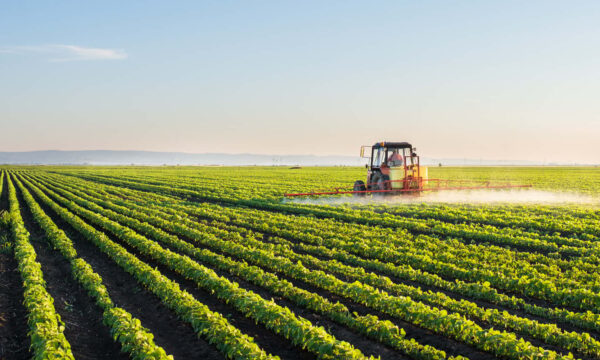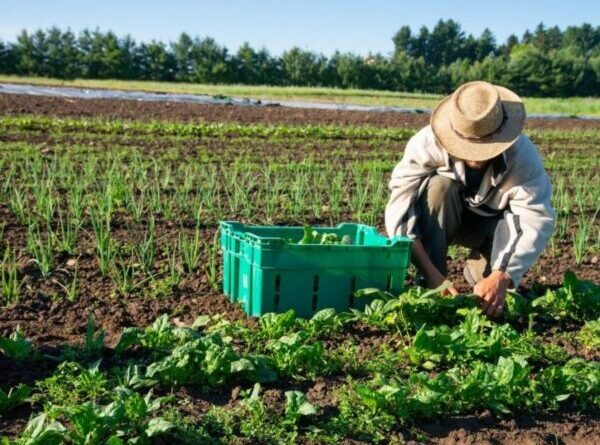Advancing Sustainable Agriculture: Cultivating a Greener Tomorrow
As global concerns about climate change and environmental sustainability continue to rise, sustainable agriculture has emerged as a vital practice for the future of farming. Far from being a mere trend, sustainable agriculture is essential for preserving our planet and ensuring the well-being of future generations. This approach balances environmental stewardship, economic viability, and social responsibility to create farming systems that are resilient and regenerative.
Defining Sustainable Agriculture:
Sustainable agriculture encompasses three core objectives:
- Environmental Stewardship: This involves farming practices that minimize environmental impact, such as reducing pollution, conserving water, enhancing soil health, and fostering biodiversity.
- Economic Viability: Ensuring that farming remains profitable is crucial. Sustainable agriculture seeks to provide fair wages and improve the economic stability of farming communities.
- Social Responsibility: This aspect emphasizes the fair treatment and empowerment of all individuals involved in the agricultural system, from workers to consumers and local communities.
Core Practices in Sustainable Agriculture:
- Crop Rotation and Diversity: Implementing a variety of crops in rotation helps maintain soil fertility, control pests and diseases, and increase resilience against climate variability.
- Conservation Tillage: By minimizing soil disturbance, conservation tillage helps preserve soil structure, reduce erosion, and maintain moisture levels, which are essential for healthy crop growth.
- Integrated Pest Management (IPM): IPM combines various strategies—biological, cultural, physical, and chemical—to manage pest populations in an economically and ecologically sound manner.
- Agroforestry: Incorporating trees and shrubs into farming systems boosts biodiversity, improves water management, and offers additional sources of income through products like fruits, nuts, and timber.
- Organic Farming: This method avoids synthetic chemicals, relying on natural inputs and processes to enhance soil health and reduce environmental pollution.
- Efficient Water Management: Techniques such as drip irrigation, rainwater harvesting, and efficient irrigation systems conserve water and ensure its sustainable use.
Advantages of Sustainable Agriculture:
- Environmental Conservation: Sustainable practices help reduce pollution, conserve water, and improve soil health, leading to a healthier and more resilient ecosystem.
- Economic Stability: Diversifying crops and optimizing resource management can reduce dependency on single crops and enhance farmers’ resilience to market and climate changes.
- Social Equity: Ensuring fair labor practices and community engagement helps distribute the benefits of sustainable agriculture more equitably, improving the quality of life for all involved.
- Food Security: Sustainable agriculture supports the production of healthy, nutritious food, contributing to a stable and secure food supply for current and future generations.

Overcoming Challenges:
Despite its benefits, sustainable agriculture faces several hurdles, such as:
- Economic Constraints: The initial investment required for transitioning to sustainable practices can be significant, posing a barrier for many small-scale farmers.
- Educational Gaps: Farmers need access to knowledge, training, and resources to successfully implement sustainable practices.
- Policy and Market Support: Effective policies and market incentives are crucial to encourage and support sustainable farming practices.
Addressing these challenges requires a collaborative effort among governments, educational institutions, consumers, and farmers. Supportive policies, investment in research and education, and heightened consumer awareness are key to driving the adoption of sustainable agriculture.
Conclusion:
Sustainable agriculture represents more than just a method of farming; it is a comprehensive approach to fostering a sustainable and equitable future. By adopting practices that protect the environment, ensure economic viability, and promote social equity, we can build a resilient agricultural system that nourishes the world while safeguarding the planet for future generations. Embracing sustainable agriculture is a crucial step towards a greener, healthier, and more just world.
FAQs:
- What exactly is sustainable agriculture?
Sustainable agriculture is a farming approach designed to meet present food needs without compromising the ability of future generations to meet theirs. It integrates practices that prioritize environmental health, economic viability, and social equity.
- Why should we care about sustainable agriculture?
Sustainable agriculture is crucial for maintaining a healthy environment, ensuring economic stability for farmers, and promoting fairness in agricultural practices. It helps mitigate pollution, conserve natural resources, and build resilient farming systems that can withstand climate challenges.
- What does the future hold for sustainable agriculture?
The future of sustainable agriculture lies in innovation and collaboration. Advances in technology, increased consumer awareness, and supportive policies will drive the expansion and enhancement of sustainable farming practices, ensuring a healthier planet and a fairer food system.
- How does sustainable agriculture benefit the environment?
Sustainable agriculture benefits the environment by:
- Reducing pollution and chemical runoff.
- Conserving water resources.
- Improving soil health through organic practices and reduced tillage.
- Promoting biodiversity by creating diverse ecosystems.
- Can sustainable agriculture be profitable?
Yes, sustainable agriculture can be profitable. Practices such as diversified crops, efficient resource use, and reduced input costs (like synthetic fertilizers and pesticides) contribute to economic resilience. Moreover, there is growing consumer demand for sustainably produced food.
- What social advantages does sustainable agriculture offer?
Sustainable agriculture promotes social equity by ensuring fair wages and safe working conditions for farm workers. It also supports local communities through education and involvement, enhancing overall quality of life.
- What challenges do farmers face when adopting sustainable agriculture?
Challenges include:
- Financial barriers: High initial investment costs.
- Knowledge gaps: Limited access to information and training.
- Policy and market support: The need for supportive policies and fair market conditions.
- Is organic farming the same as sustainable agriculture?
While organic farming is a component of sustainable agriculture, they are not identical. Organic farming focuses on avoiding synthetic inputs and promoting natural processes. Sustainable agriculture encompasses a broader range of practices aimed at environmental health, economic viability, and social equity.
- How does sustainable agriculture address climate change?
Sustainable agriculture helps mitigate climate change by:
- Reducing greenhouse gas emissions through efficient resource use.
- Enhancing carbon sequestration in soils and vegetation.
- Building resilience to climate impacts with adaptive farming practices.
- What role do governments play in promoting sustainable agriculture?
Governments play a critical role by:
- Implementing policies that incentivize sustainable practices.
- Funding research and education on sustainable farming.
- Supporting infrastructure development for sustainable agriculture.
- Ensuring fair trade practices and market access for sustainably produced goods.




